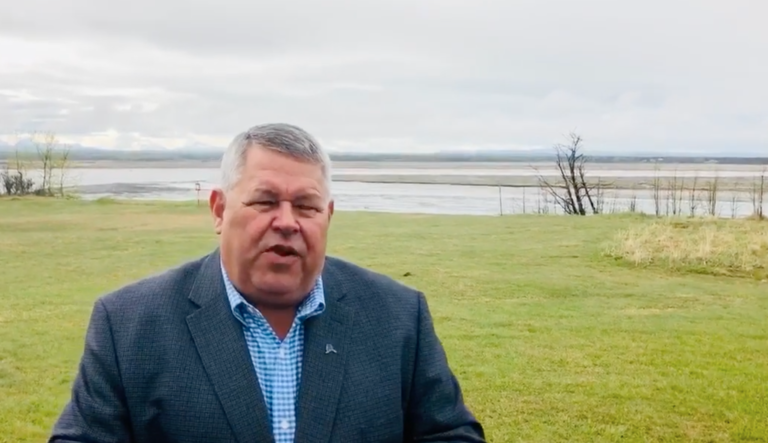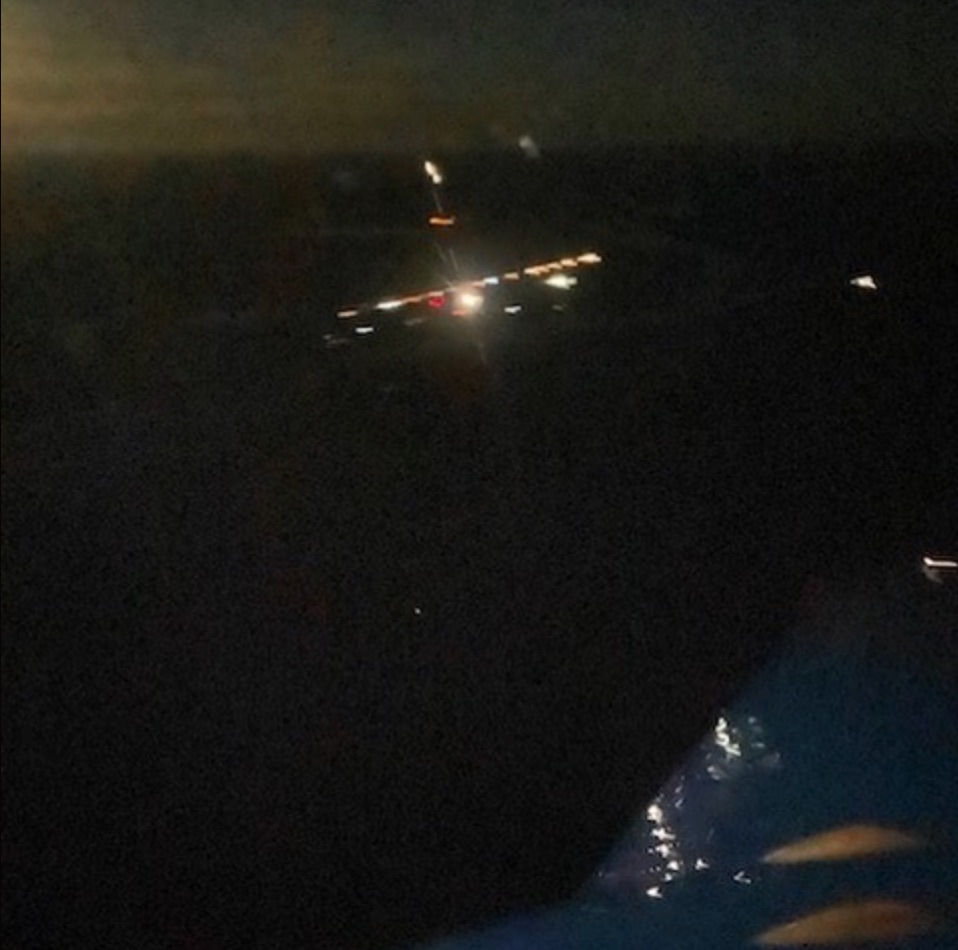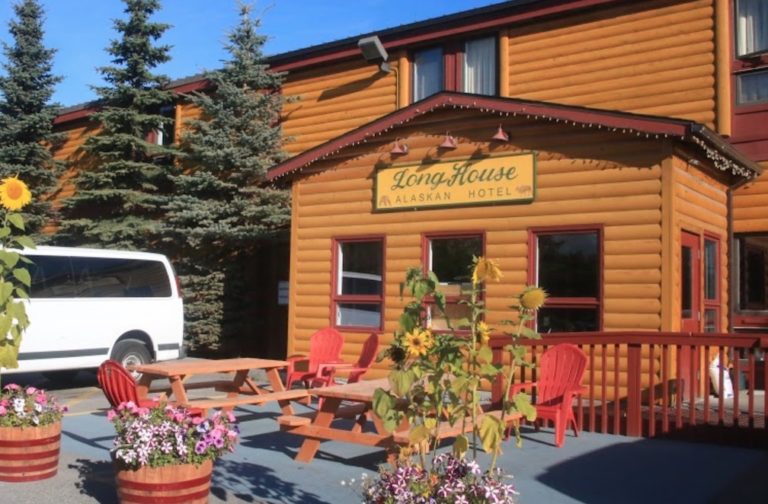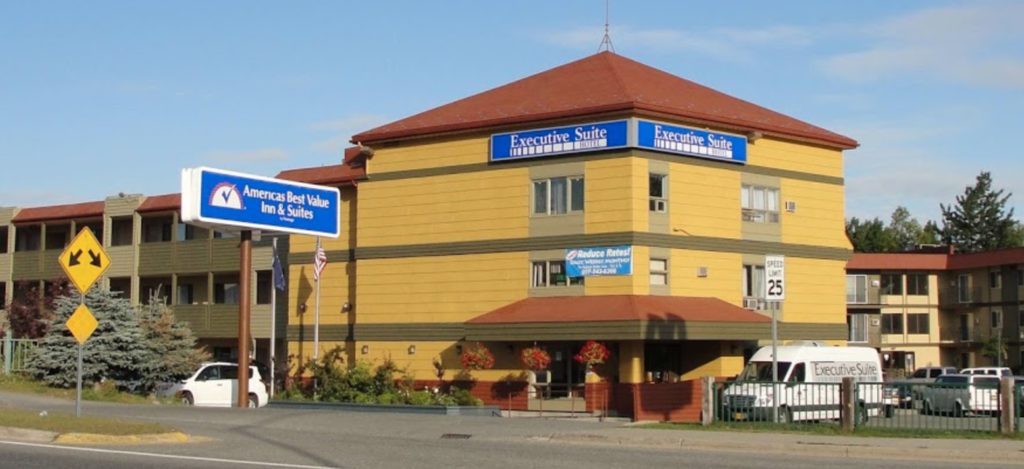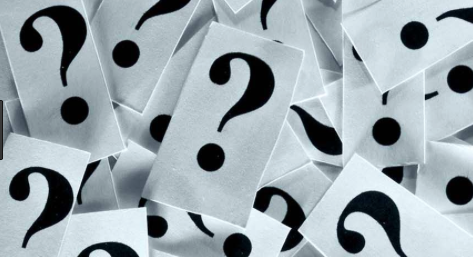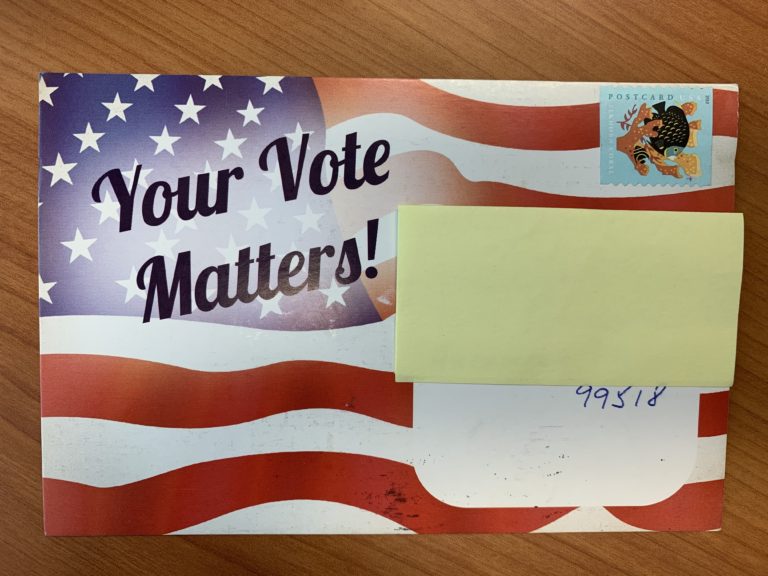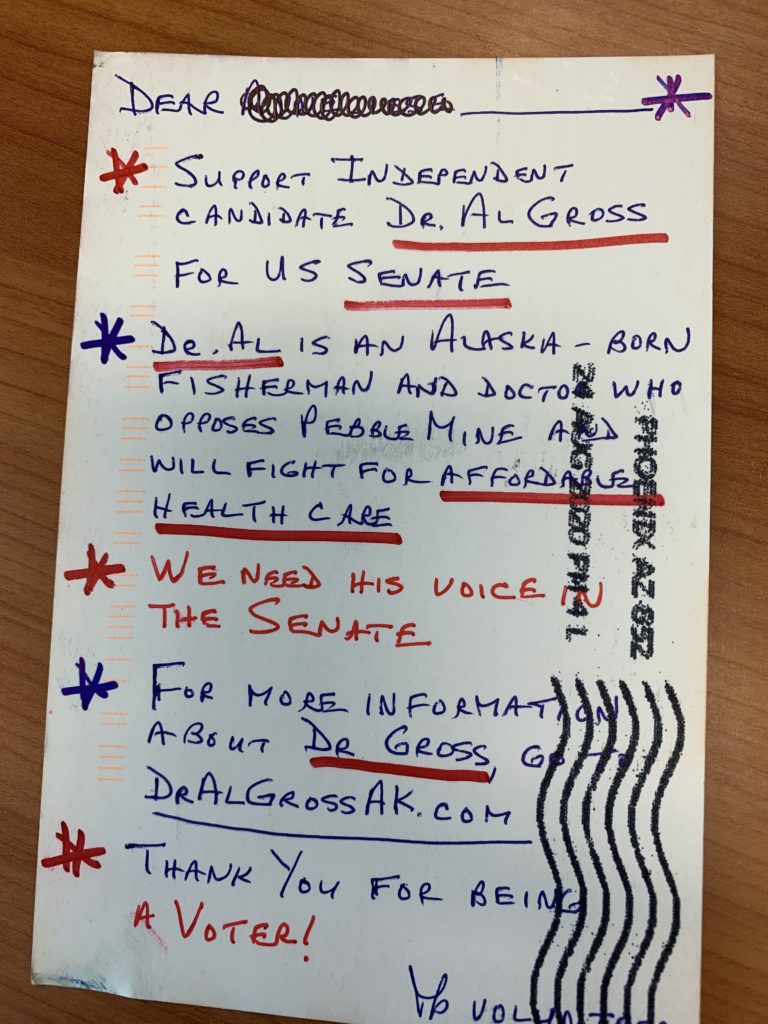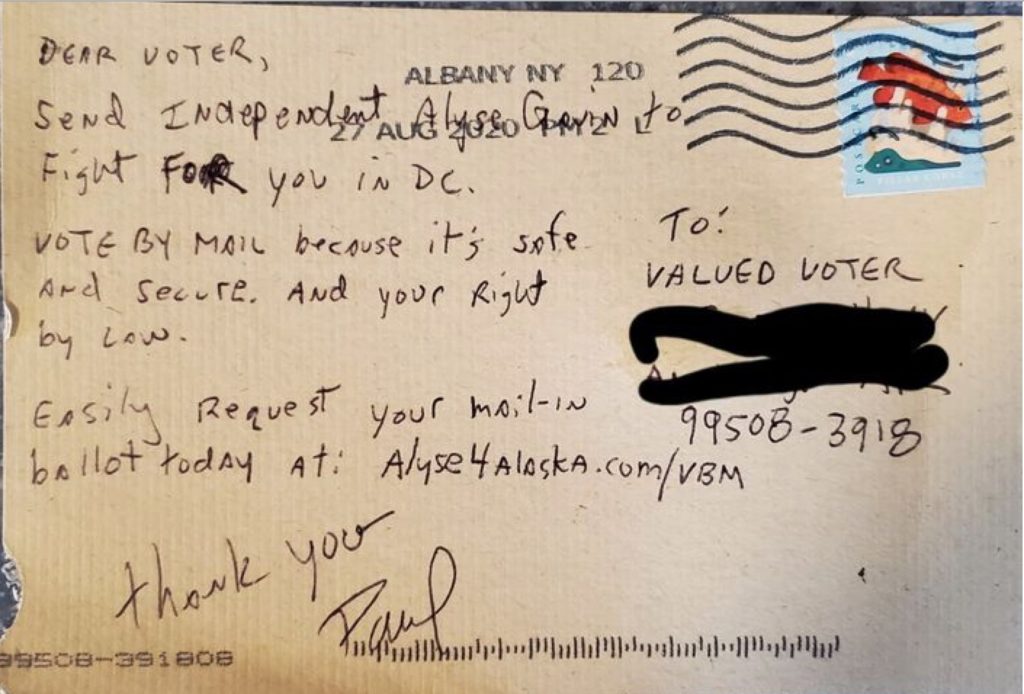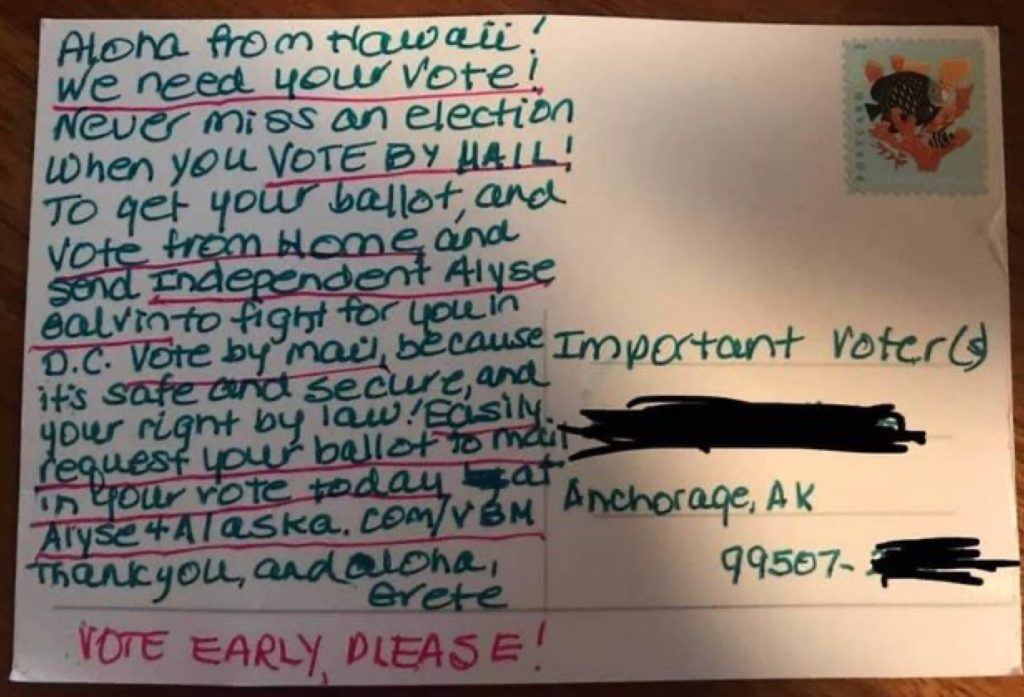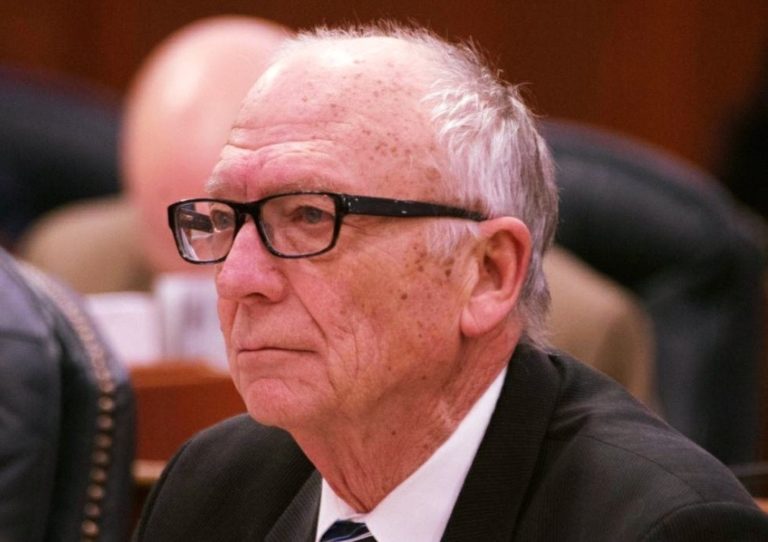SOCIAL MEDIA PLATFORM TARGETS QANON
The CEO of Facebook has spoken. With the General Elections two months away, Mark Zuckerberg says he is worried that between COVID-19 and with a nation so divided, all new political ads during the last week of the campaign season are banned from the Facebook platform.
Candidates across the country, from the president to local legislative races, will need to adjust their last-week publicity plans accordingly.
During a year of pandemic, many campaigns are relying heavily on the social media platform, particularly in Alaska, where it is already a wildly popular communication tool. Very few in-person events are being held, particularly for the legislative races.
Zuckerberg said he is concerned that new ads might contain material that will cause civil unrest, especially if it takes days or weeks for the final vote to be tallied and results certified.
With an uptick in mail-in voting, it is a distinct possibility that some races will be too close to call on Election Night.
“We all have a responsibility to protect our democracy,” Zuckerberg wrote, referring to the constitutional republic form of government that is the United States of America. “That means helping people register and vote, clearing up confusion about how this election will work, and taking steps to reduce the chances of violence and unrest.”
Facebook is already running the largest voting information campaign in American history, with a company goal of registering 4 million people and getting them to vote.
He noted that he and his wife have donated $300 million to non-partisan organizations supporting states and local counties in strengthening our voting infrastructure. Now, as foreshadowed earlier this summer, the company is going to actively get involved to encourage voting, push out authoritative information, and fight misinformation.
“These changes reflect what we’ve learned from our elections work over the past four years and the conversations we’ve had with voting rights experts and our civil rights auditors,” he wrote.
One change will be the placement of a Voting Information Center at the top of Facebook and Instagram almost every day until the election. The information center will contain video tutorials on how to vote by mail, and information on deadlines for registering and voting tailored to every state.
The company is also blocking new political and issue ads during the final week of the campaign.
“It’s important that campaigns can run get out the vote campaigns, and I generally believe the best antidote to bad speech is more speech, but in the final days of an election there may not be enough time to contest new claims. So in the week before the election, we won’t accept new political or issue ads,” he said.
Advertisers will be able to continue running ads they started running before the final week and adjust the targeting for those ads.
The social media behemoth is also going to remove any perceived misinformation about voting, such as false claims about polling locations.
“We’ve already consulted with state election officials on whether certain voting claims are accurate,” Zuckerberg wrote. The company will prevent misinformation from going viral on its site by limiting the forwarding function on Messenger and WhatsApp. This is a technique Facebook says it has used in other countries to prevent the spread of misinformation.
An example of misinformation that the company might delete would be a post that tells people they can mail in their ballots up to three days after the election deadline, or that anyone who has a driver’s license can vote.
Another new election-related rule pertains to posts about people being more likely to catch the COVID-19 coronavirus if they go to the polls.
“We’ll attach a link to authoritative information about Covid-19 to posts that might use the virus to discourage voting, and we’re not going to allow this kind of content in ads. Given the unique circumstances of this election, it’s especially important that people have accurate information about the many ways to vote safely, and that Covid-19 isn’t used to scare people into not exercising their right to vote,” he wrote.
Zuckerberg is predicting that the results of many races won’t be known immediately and that the political climate could get heated, with civil unrest. The company will use the Voting Information Center feature to advise people repeatedly that results may not be known right away and that this doesn’t mean anything nefarious is going on to delegitimize the race.
The company will partner with Reuters and the “National Election Pool” to provide authoritative information about election results. Those results will appear in Facebook’s Voting Information Center and the company will notify users as results become available. This will present a huge challenge for television news networks, which are used to owning the viewership on Election Night.
If any candidate or campaign tries to declare victory before the results are in, the company will add a label to their post educating that official results are not yet in and directing people to the official results, he wrote.
Additionally, the company will attach labels to any post that seeks to delegitimize the outcome of the election or even ones that discuss the legitimacy of voting methods.
Facebook’s CEO gave a special stink-eye to one group: QAnon. Without naming the violent Antifa or Black Lives Matter organizations, Zuckerberg said QAnon is the one he is worried about stirring up trouble. Qanon and militias, he said, using a word typically referring to right-wing, constitutionally based groups.
Qanon is a label that left-wing media have used to delegitimize support for the president and have recently tried to push to equate with Antifa, a violent Marxist movement in the U.S. According to Wikipedia, “QAnon is a far-right conspiracy theory alleging that a cabal of Satan-worshiping pedophiles running a global child sex-trafficking ring is plotting against President Donald Trump, who is battling them, leading to a ‘day of reckoning’ involving the mass arrest of journalists and politicians…”
“We’ve already strengthened our enforcement against militias, conspiracy networks like QAnon, and other groups that could be used to organize violence or civil unrest in the period after the elections,” Zuckerberg wrote. We have already removed thousands of these groups and removed even more from being included in our recommendations and search results. We will continue to ramp up enforcement against these groups over the coming weeks.It’s important to recognize that there may be legitimate concerns about the electoral process over the coming months. We want to make sure people can speak up if they encounter problems at the polls or have been prevented from voting, but that doesn’t extend to spreading misinformation.”
As for foreign interference in the elections or on Facebook, Zuckerberg says the threat has not gone away.
The company this week took down a network of 13 accounts and 2 pages that were trying to mislead Americans and amplify division, he said.
“We’ve invested heavily in our security systems and now have some of the most sophisticated teams and systems in the world to prevent these attacks. We’ve removed more than 100 networks worldwide engaging in coordinated inauthentic behavior over the past couple of years, including ahead of major democratic elections. However, we’re increasingly seeing attempts to undermine the legitimacy of our elections from within our own borders,” he said.
“I believe our democracy is strong enough to withstand this challenge and deliver a free and fair election — even if it takes time for every vote to be counted,” he wrote, calling on campaigns, parties and the public to live up to their responsibilities to protect free and fair elections.
